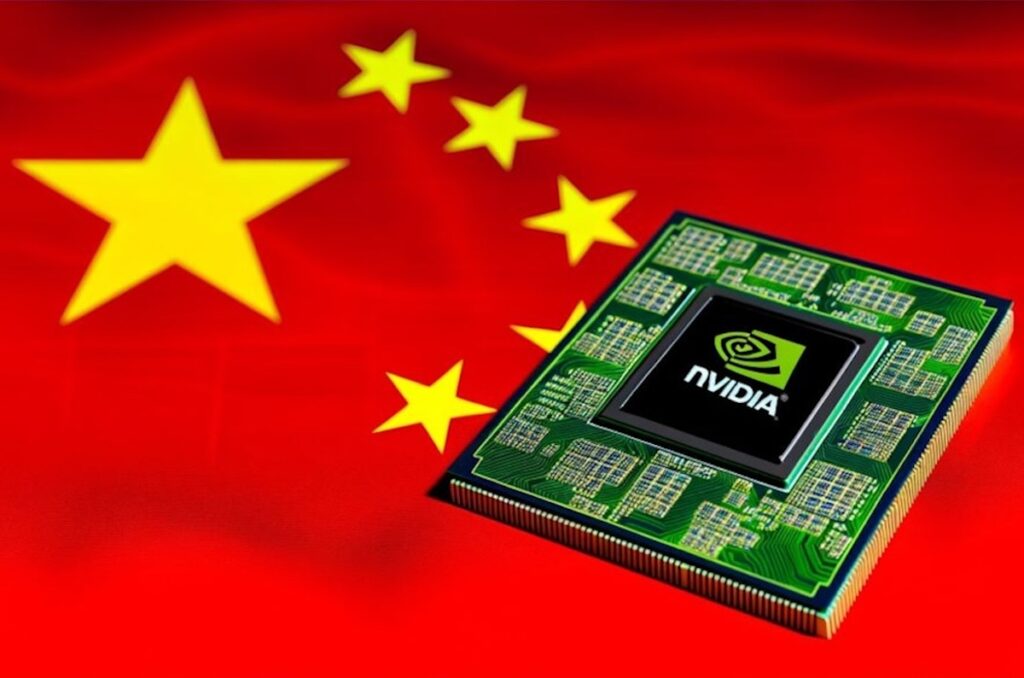The United States plans to tighten its export controls on Nvidia’s high-end artificial intelligence (AI) chips, specifically targeting Malaysia and Thailand, to prevent Chinese firms from obtaining those processors to train their AI models.
The US Commerce Department is drafting a preliminary version of a new export rule that would require any company to obtain a license before exporting AI graphics processing units (GPUs) to the two Southeast Asian countries, according to a Bloomberg report.
The report, citing people familiar with the matter, stated that the new rule is still being finalized and may be subject to change. It also said the new rule will include some measures to ensure it does not disrupt the supply chain in Southeast Asia.
The report followed an interview with an unnamed senior State Department official, who told Reuters on June 23 that China’s DeepSeek sought to use Southeast Asian shell companies to obtain high-end Nvidia chips, including H100 chips, which cannot be shipped to China under US rules.
Strategic decoupling
Reports since late June say the US has started easing its export controls for
In return, Beijing has relaxed its export controls on key minerals for the US.
However, the de-escalation of the US-China trade war does not mean that Washington will stop its plan to push forward its strategic decoupling from China.
Malaysia’s Investment, Trade, and Industry Minister, Tengku Zafrul Aziz, was quoted by the Financial Times on March 23 as saying that the US had asked the Malaysian government to monitor every shipment of Nvidia chips that comes to Malaysia.
Zafrul said he had formed a task force with Digital Minister Gobind Singh Deo to tighten regulations on Malaysia’s expanding data center industry.
“They want us to make sure that servers end up in the data centers that they’re supposed to and not suddenly move to another ship,” he said.
Washington’s call for investigating end-users of Nvidia’s AI chips in Malaysia followed Singapore’s charges against three men in February for allegedly helping to ship Nvidia’s high-end chips to DeepSeek in China in 2024. Media reports said the case involved US$390 million worth of AI chips.
The defendants, including two Singaporeans and a Chinese national, were accused of shipping servers containing Nvidia chips to Malaysia and potentially to other locations. If convicted, they could face penalties of jail terms of up to 20 years or fines or both.
4.8 petabytes of data
On May 13, the US Commerce Department’s Bureau of Industry and Security (BIS) rescinded the Biden administration’s AI diffusion rule and replaced it with three guidelines to forbid companies from
using Ascend chips,
deploying US chips to help Chinese firms train their AI models or
re-exporting US high-end chips to China.
The guidelines said AI chip exporters, re-exporters, or transferors must apply for licenses if they have “knowledge” that their customers will use the processors to train AI models for or on behalf of parties headquartered in US-arms-embargoed countries (or D:5 countries), including China and Macau.
The Wall Street Journal reported on June 12 that four Chinese technology engineers flew in from Beijing to Kuala Lumpur, each carrying 15 hard drives with 80 TBs of data per drive to train an AI model.
The 60 hard drives, containing a combined 4.8 petabytes of data, were sufficient for training several large language models (LLMs). OpenAI’s ChatGPT is an example of an LLM.
The Chinese personnel processed their data by renting 300 Nvidia AI servers at a local data center. The WSJ said that US regulations strongly focus on restricting the exports of physical chips but not cloud-based computing power, creating a significant loophole that Chinese firms have effectively leveraged.
“Malaysia has just joined BRICS (led by Brazil, Russia, India, China, and South Africa) but secretly informed the US and helped it eliminate its chip export controls’ loophole,” a Henan-based columnist writes in an article. “Malaysia’s snitching behavior has caused China to be highly vigilant!”
The columnist said Malaysia has made a dangerous move, as some other Southeast Asian countries may follow in its footsteps to stab China in the back.
He said Malaysia should be aware that China has passed an Anti-Foreign Sanctions Law, which allows for the sanctioning of any company that assists the US in suppressing Chinese firms.
On July 5, Ruan Jiaqi, a columnist at Guancha.cn, published an article saying that the United States’ “black hand” is reaching out to Malaysia and Thailand despite the Trump administration’s rescission of the Biden administration’s AI Diffusion Rules in May.
“Washington’s evil intention of targeting China has not ended,” Ruan says. “The US maintains not only chip restrictions targeting China, imposed in 2022 and ramped up several times since then, but also a 2023 measure unveiled by Biden officials designed to address smuggling concerns and increase visibility into key markets.”
Reiterating the Chinese Foreign Ministry’s previous statement, she says China has declared its solemn position on the United States’ malicious blocking and suppression of China’s chip sector.
“The US has politicized trade and tech issues, overstretched the concept of security and used these issues as tools, stepping up chip export controls against China and coercing other countries into going after China’s semiconductor industry,” she says. “Such moves hinder the development of the global chip industry and will backfire and hurt the US itself and others in the end.”
Read: DeepSeek gets Nvidia’s high-end GPUs via Singapore: US official

